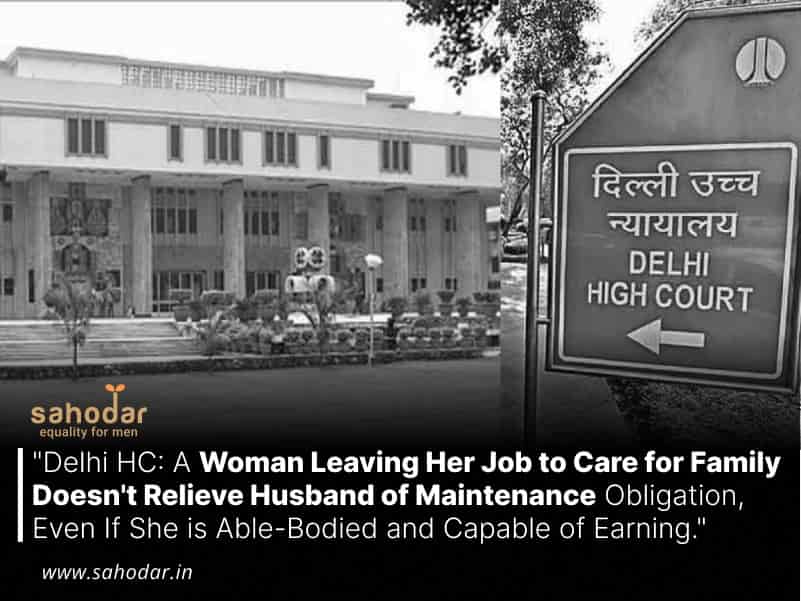The Delhi High Court stated that a husband must provide maintenance to his wife and children, even if the wife is able-bodied and can earn money.
The Court noted that the Petitioner is not only insulting his wife but also all women by calling her a parasite and misusing the legal system.
The Court was looking at a Criminal MC that challenged a previous decision by the Additional Sessions Judge, which supported the Metropolitan Magistrate’s order. The Magistrate had ordered the Petitioner to pay ₹30,000 a month in maintenance to the respondent. Additionally, the Petitioner was required to pay ₹5 lakh for injuries, mental suffering, and emotional distress, along with ₹3 lakh for other costs, including ₹30,000 for legal fees.
The bench of Justice Subramonium Prasad observed, “The fact that the Respondent is able bodied and can earn a livelihood does not absolve a husband not to provide maintenance to his wife and children. Indian women leave their jobs to look after the family, cater to the needs of their children, look after their husbands and his parents. The contention that the Respondent is only a parasite and is abusing the process of law is nothing but an insult not only to the Respondent herein but to the entire women kind.”
Advocate Sanjay Kumar Tiwary appeared for the Appellant.
Brief Facts–
The Respondent-wife requested maintenance, alleging that the Petitioner-husband had abused her and was involved in an extramarital affair. She claimed that he had left her and their two children without any financial support. She pointed out that the Petitioner was financially stable, owning a business, properties, and vehicles, while she was unemployed and dependent on him. The Trial Court granted her maintenance and compensation. The Petitioner’s appeal was denied by the Court, and the Appellate Court upheld the Trial Court’s decision, dismissing his claims. The Petitioner is now challenging the Trial Court’s ruling in this petition.
The Court observed, “The Apex Court has consistently upheld that the conceptualisation of Section 125 was meant to ameliorate the financial suffering of a woman who had left her matrimonial home; it is a means to secure the woman‟s sustenance, along with that of the children, if any. The statutory provision entails that if the husband has sufficient means, he is obligated to maintain his wife and children, and not shirk away from his moral and familial responsibilities.”
The Court mentioned the Apex Court decision in Apex Court in Chaturbhuj v. Sita Bai, (2008) and quoted, “Whether the deserted wife was unable to maintain herself, has to be decided on the basis of the material placed on record. Where the personal income of the wife is insufficient she can claim maintenance under Section 125 CrPC. The test is whether the wife is in a position to maintain herself in the way she was used to in the place of her husband…it was observed that the wife should be in a position to maintain a standard of living which is neither luxurious nor penurious but what is consistent with status of a family. The expression “unable to maintain herself” does not mean that the wife must be absolutely destitute before she can apply for maintenance under Section 125 CrPC.”
The Court said that the fact that the Respondent/Wife is capable of earning cannot work to her detriment.
Accordingly, the Court dismissed the Petition.

